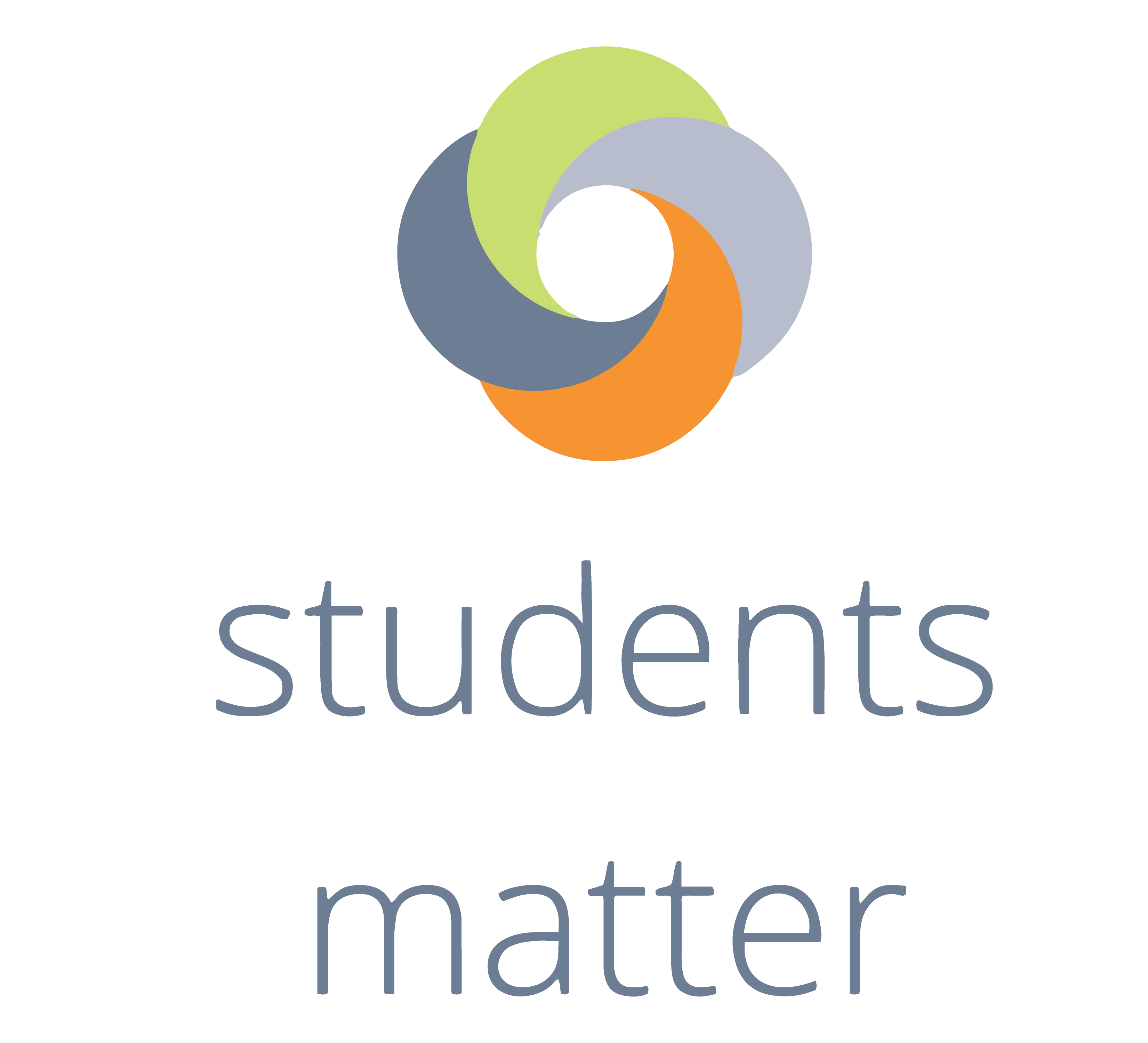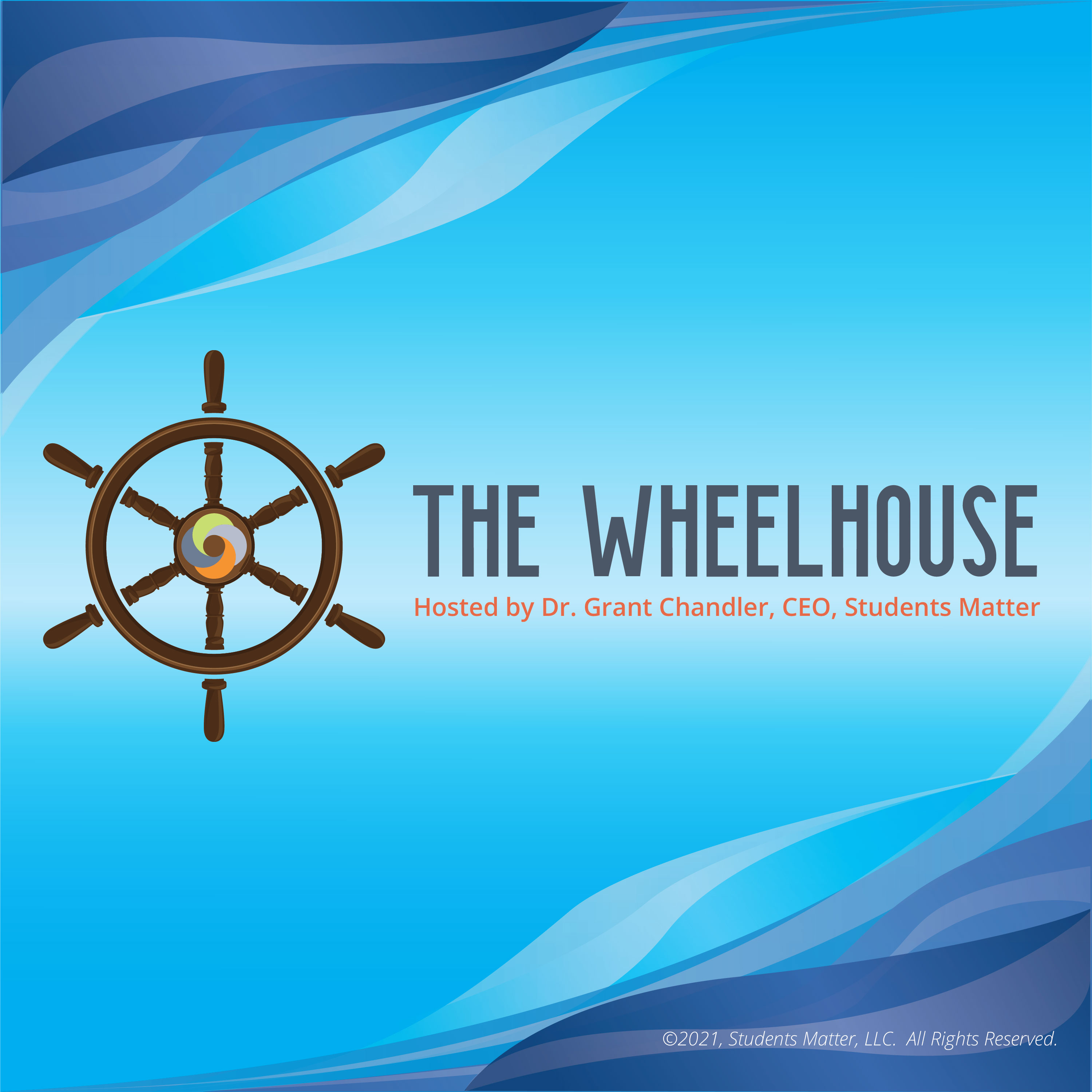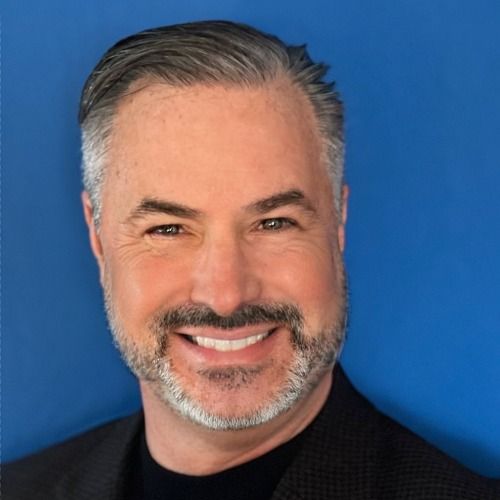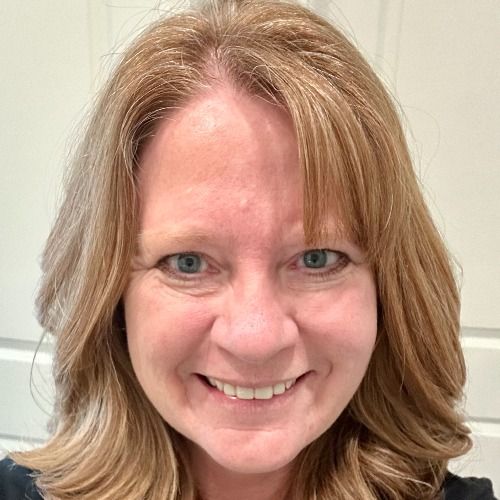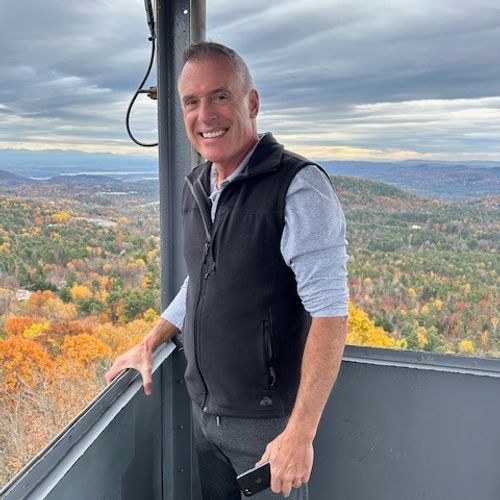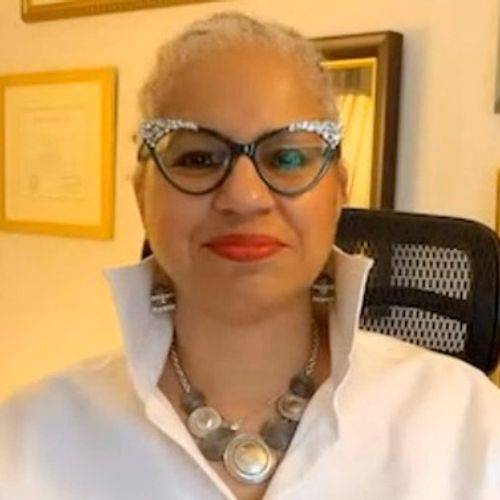Empowering Educators: Cultivating Hope in Season Nine
The inaugural episode of Season Nine of the Wheelhouse is a profound exploration of the imperative to cultivate hope within educational spaces. We embark on a critical dialogue centered around the vision of the Wheelhouse and its four guiding principles, which serve as the bedrock for our community of educators. Our discussion poses a pivotal question: are we in the business of promoting hope or inadvertently killing dreams? This inquiry is not merely rhetorical; it encapsulates the essence of our mission as we strive to create an inclusive environment where every learner is recognized as distinctive and irreplaceable. As we navigate this season, we invite listeners to reflect on these principles and join us in fostering a culture of empowerment and optimism for all students.
The inaugural episode of Season Nine of the Wheelhouse podcast marks a significant moment in our ongoing dialogue surrounding educational empowerment. We convene a panel of esteemed colleagues, including Kathy Mohney, Michael Pipa, Dr. Alicia Monroe, and myself, to delve into the profound question: Are we promoting hope or killing dreams? This pivotal inquiry serves as the foundation for our discourse as we strive to inspire educators to cultivate an environment where every learner feels valued and supported.
As we navigate the complexities of educational landscapes, we introduce the guiding principles that underpin the Wheelhouse's mission. Our commitment to inclusivity and the recognition of each learner's uniqueness is paramount. We assert that education should transcend the transactional nature of conventional schooling; instead, it ought to be a transformational journey that honors the dignity of every student. We emphasize that dignity is a birthright, not a privilege to be earned, and articulate our aspiration to foster a climate of open doors and unlimited possibilities for all students.
The episode culminates in a call to action, inviting listeners to join our community and engage with our newsletter. Together, we endeavor to cultivate hope and empower educators to challenge the status quo, ensuring that every child's potential is recognized and nurtured. This discourse is not merely theoretical; it is an urgent and necessary conversation as we collectively rethink our roles as educators in today's society.
In this inaugural episode of Season Nine, we embark on a journey of reflection and action, exploring how the Wheelhouse can serve as a catalyst for change in the educational realm. Our guiding principles are not just words; they are the essence of our commitment to humanizing education, fostering a community of support, and ensuring that we, as educators, actively choose to promote hope rather than stifle dreams. Join us as we navigate this essential dialogue and strive to make a meaningful impact in the lives of the students we serve.
Takeaways:
- In our inaugural episode of season nine, we emphasize the importance of nurturing hope among educators and students alike.
- We firmly believe that every educator and learner possesses uniqueness that deserves recognition and respect.
- The guiding principles of our podcast aim to establish an inclusive community focused on empowering educators and students.
- Our discussions underscore the critical choice we face daily: to either promote hope or inadvertently stifle dreams.
- We advocate for an educational environment where dignity is seen as an inherent right, not something that must be earned.
- Through our conversations, we aim to inspire educators to reflect on their practices and the impact they have on students' futures.
Links referenced in this episode:
Transcript
I'm Dr.
Speaker A:Grant Chandler and this is the season nine debut of the Wheelhouse.
Speaker A:A new episode begins right now.
Speaker A:Thank you so much for taking time out of your busy day to give us a listen.
Speaker A:Season nine features a panel of four like minded friends and colleagues.
Speaker A:Kathy Mone, Michael Pipa, Dr.
Speaker A:Alicia Munro, and yours truly.
Speaker A:We've opened up the conversation this season to think about empowering educators to cultivate hope.
Speaker A:In this first episode, we talk about the vision of the wheelhouse and its four guiding principles.
Speaker A:At the end of the day, Dr.
Speaker A:Monroe said it loudly and clearly.
Speaker A:Are we in the business of promoting hope or killing dreams?
Speaker A:And Michael reinforced the idea that everything we do, every minute of every day, is about one of those two choices.
Speaker A:We're either promoting hope or killing dreams.
Speaker A:At the end of this episode, I'm going to invite you to join our community to check out our newsletter together.
Speaker A:Let's cultivate hope for each and every student.
Speaker A:Now.
Speaker A:Episode one.
Speaker A:You're not going to want to miss this.
Speaker A:Take a listen.
Speaker A:It is season nine of the Wheelhouse.
Speaker A:I can't believe it's season nine because it feels like a brand new show is in the works.
Speaker A:I have been looking forward to this day.
Speaker A:Kathy and I have been talking about this and preparing for this since the end of season eight.
Speaker A:So.
Speaker A:Hey, Kathy, welcome to the Wheelhouse.
Speaker B:Hi.
Speaker B:I'm so excited to be back.
Speaker A:I am so glad that you are here.
Speaker A:And we are joined permanently, permanently by two of the coolest humans I know besides Kathy Mone.
Speaker A:Right.
Speaker A:Michael Pipa and Alicia Munroe, welcome permanently again to the Wheelhouse.
Speaker C:Welcome.
Speaker C:Welcome to both of you.
Speaker C:It's good to see you guys again.
Speaker C:Good to see you, Alicia.
Speaker D:It's great to be in this space and I am so excited to share with Grant, Cathy and Michael, especially being welcomed to the table during Black History Month.
Speaker D: ortant matters, especially in: Speaker D:Thank you, Grant.
Speaker D:Thank you, Kathy.
Speaker D:And thank you, Michael.
Speaker C:Thank you, Alicia.
Speaker A:You know, this show is recorded in a very organic way and it has developed in a very organic way as well.
Speaker A:Because, you know, we had Michael Pipa as a guest in a couple of seasons and then said, oh, he's gotta stay.
Speaker A:And then we had Alicia joined us in season eight and we're like, oh, she's gotta stay too.
Speaker A:And so I thank you.
Speaker A:I thank you for being willing to join this podcast and to help build this incredible community for educators.
Speaker B:Yeah.
Speaker B:And I think we'd be remiss to not thank Penny Brockway for being on the Wheelhouse for so many seasons.
Speaker B:Penny has stepped into some new journeys in her professional and personal life.
Speaker B:And so we, we miss you, Penny, and are super excited to have you listen to us and hear, hear what you have to say, what you think about our, Our new guests.
Speaker B:Not guests, permanent, permanent people on the wheelhouse.
Speaker A:Yes.
Speaker A:Thank you, Penny, for everything that you did for the wheelhouse.
Speaker A:That is absolutely true, Kathy.
Speaker A:And thank you for mentioning that.
Speaker A:You know, it feels like spring is just around the corner, right?
Speaker A:I know it's getting lighter in the morning, lighter at night.
Speaker A:It just needs to not be like 12 degrees below zero.
Speaker A:Right.
Speaker A:Anyway, but we are all warm, right?
Speaker A:Safely tucked away in spaces all over the country as we, as we record.
Speaker A:I want to just take a moment and ground this conversation.
Speaker A:So this is season nine.
Speaker A:We're kind of heading in an exciting direction with plans to have really cool guests and really great conversations and especially really thinking about how the four of us are going to build this community of like minded educators, you know, from all over the country and the world.
Speaker A:So I'm just gonna.
Speaker A:We sat down a couple of weeks ago to kind of reinvent or redefine what the Wheelhouse is all about.
Speaker A:And I think today's conversation is about that vision and those guiding principles.
Speaker A:So I'm going to throw them out into the space and then we're just going to chat about it.
Speaker A:It says the Wheelhouse exists to create an inclusive community of empowered educators who believe that together we can disrupt the transactional herding nature of school, to create districts, schools and classrooms where each student feels confident, optimistic, well supported and emboldened to be and to become who they are meant to be.
Speaker A:And we have four guiding principles in this wheelhouse.
Speaker A:The first, we are steadfastly committed to each learner and to each educator, believing that they are distinctive and irreplaceable.
Speaker A:Two, we believe that educating our children should be a humanizing, relational and transformational endeavor.
Speaker A:All else is secondary.
Speaker A:Three, we believe that dignity is a birthright.
Speaker A:It is not earned.
Speaker A:Each child deserves a future filled with open doors and unlimited possibilities.
Speaker A:Our work is in service to this central aspiration.
Speaker A:And finally, we believe that each human life is unique and precious.
Speaker A:As such, we are compelled to remove aspects of schooling that disregard any student's dignity.
Speaker A:I feel like I just.
Speaker A:Mic dropped.
Speaker A:You did, right?
Speaker A:It was like, oh.
Speaker A:Okay, show's over.
Speaker A:Thank you very much for joining us today.
Speaker A:Right.
Speaker A:Why, why are these Guiding principles so important to us, we had a lot of conversation together, but before we started producing this season of the Wheelhouse, to really think about and talk about these guiding principles, why are they so important to you?
Speaker D:So before we even look at the guiding principles, what really pushed me forward into reflection is the narrative that precedes the guiding principles.
Speaker D:When we're looking at inclusion, and yes, I said it, and what is an inclusive community, that was huge.
Speaker D:We had a large conversation around that, because inclusion to each one of us is very different, represents our backgrounds, our lived experience, our life worlds, and our world views.
Speaker D:But to disrupt that in order to come together in community so that we are steadfastly committed to each learner, I'd like to explore that a little bit, because it's a blessing that we're together right now, and we don't want to take that lightly because we do have community and we have distinguish ourselves as different and diverse because we have a heart of servant leadership and an action of advocacy.
Speaker B:I think there's so much there, Alicia, to really lift up, really think about that, you know, think about our space that we intentionally set, you know, before we hit the recording button, to know that to be able to have conversations in a really authentic way, to be in a space with people that are unique and are distinctive and irreplaceable, and knowing that we have that for one another here, and how do we extend that to everyone who's listening so that they're extending that to everyone that they come in contact?
Speaker B:So it's really this opportunity to create this ripple effect, to know that in.
Speaker B:In this world, in our seats, wherever we are, that we have this absolute blessing, this responsibility to ensure that all of those guiding principles that grant read that we are living into that.
Speaker B:And so us taking the time to really define that has allowed for us to ensure that our conversations, our guests, are going to be grounded in that, in our why, why we exist, because lots of podcasts out there, what makes us unique and allows for us to be able to really center ourselves within those.
Speaker B:Those guiding principles.
Speaker C:I think about the place of strength that I want to work from as an educator and the statement at the heart of the work of the wheelhouse and the four guiding principles.
Speaker C:Create that place of strength, put words on it and frame it for me so that when I start to say these words and remind myself of these truths, I'm instantly in that place of centered strength where I can leverage all of the wisdom that I've been given and I can bring it to that work.
Speaker C:I'm reminded that our oldest child began her experience in our public school system, where a school psychologist, because of her presentation, was pushing for an Mr.
Speaker C:Designation on her IEP, which was, in the day, two letters meaning mental retardation.
Speaker C:This child, in her junior year of high school, was in an AP history class, where at the end of the year on that AP exam, she was the only child in the building to score perfectly.
Speaker C:And her teacher stopped my wife and I in the parking lot and said, I just need to tell you that for the last three hours, a student's essay has been passed around this building.
Speaker C:There have probably been over 100 different readers, and it was your daughters.
Speaker C:I've never held a paper where everything was so beautifully expressed.
Speaker C:Just wanted you to know.
Speaker C:Each child is distinctive and irreplaceable.
Speaker C:And every day when I enter a school building, I see the pageantry of humanity.
Speaker C:I watch sophomores who are doing their first reading of Lord of the Flies, and in their groups, I'm watching Lord of the Flies behavior enacted.
Speaker C:And.
Speaker C:And I think this is what's joyful about the work when we see these people as distinctive and irreplaceable, when we see each of them.
Speaker C:So these principles put me in that place where I can work from my point of strength.
Speaker A:And yet traditional schooling is now organized.
Speaker A:It is not focused on that human approach.
Speaker A:It's not focused on ensuring that each student, each child knows that they're distinctive and irreplaceable.
Speaker A:It is about herding the collective plural towards some finish line, whatever that finish line is.
Speaker A:And it's how educators unknowingly, maybe naively, respond to that transactional nature in ways that cause harm, that cause harm to children, right?
Speaker A:And this work is about helping us all rethink, rethink that.
Speaker A:Because at the end of 13 years of schooling, kids should feel as if they have been nurtured and grown and supported to be whoever they are meant to be.
Speaker A:That's what this podcast is all about, right?
Speaker A:It's about bringing us together in spaces where we go.
Speaker A:You know, there are lots of ways that schools unintentionally and sometimes intentionally harm children.
Speaker A:We got to really rethink all of that, because this push to test scores as the sole measure of what's going on isn't working for us.
Speaker A:And at the end of the day, we all have children sitting around this table, right?
Speaker A:We all have children.
Speaker A:Some of us have grandchildren, some of us will.
Speaker A:That's not what we want for our kids.
Speaker A: n this inclusive space and in: Speaker A:We can say.
Speaker A:And we can say what we need to say, because this is our show.
Speaker A:And for listeners who don't have the same values, there are other shows to listen to, and that's okay.
Speaker A:And those of you who think, oh, wow, you're onto something really important, join us in the journey.
Speaker A:Alicia, thank you for lifting that.
Speaker D:That's great.
Speaker D:And I appreciate the conversation, I think, about what we all shared and what rested with me, because I am really reflective in the practice.
Speaker D:So I'm processing all those good nuggets that you all planted and shared in the space is a charge that I.
Speaker D:That I present not only to myself, but to all educators that I touch and I.
Speaker D:And I consult around the world.
Speaker D:And regardless of the language that we're speaking in at the time, it's, are we promoting hope or are we killing dreams?
Speaker D:And if we're looking at those two constructs, we have to understand what is our mission, what is our purpose, and what is our intent.
Speaker D:So it was indeed a privilege that Grant, you had us come about being very purposeful and intentional, not as a buzzword, but as a real qualifier to come around and sit and truly dissect our purpose, our mission, our vision, and our guiding principles.
Speaker D:Because every educator that is in this space, we promote hope in each and every child, and it is powerful work that we do.
Speaker A:I love that word.
Speaker A:I love that word.
Speaker A:And I also love the juxtaposition of hope and killing dreams.
Speaker D:Great.
Speaker D:Because that's in my next book.
Speaker D:I love that.
Speaker B:I wrote it down.
Speaker A:Yeah, I think that.
Speaker A:Go ahead, Kathy.
Speaker A:I think it's really powerful.
Speaker D:Yeah.
Speaker B:Because I think then it allows for us to be in the space to challenge ourselves and challenge others in knowing that, as Grant said, this may not be the conversation that some people want to be a part of and.
Speaker B:And that's okay.
Speaker B:But those that are ready are willing and are trying to live in this space of promoting hope and not killing dreams and looking for those that are feeling that way, more like that community.
Speaker B:Because sometimes it can feel isolating.
Speaker B:Sometimes you can be in a space and education that you feel like, am I the only one that's thinking this?
Speaker B:Am I the only one that's really advocating for this moral imperative?
Speaker B:And then you start to learn and say those.
Speaker B:The right words, the right phrases that others say.
Speaker B:That's what I've been thinking.
Speaker B:That's what I've been feeling I just don't know how to do it because I'm tied to my pacing guide.
Speaker B:I'm tied to my academic.
Speaker B:I need to know there are others, that there's a community of hope and that we can together build on that so that each student, each educator, that we are so fortunate to be a part of their lives, that they know that, that they feel that, and they can live that.
Speaker C:Alicia, you.
Speaker C:You used just a quick phrase as you were talking about your work in all the places in the world where it happens, touching lives.
Speaker C:And it reminded me of a conversation I had with a colleague yesterday who.
Speaker C:About a particular student who, you know, as.
Speaker C:As kids will do.
Speaker C:They will.
Speaker C:They will wear us out as they take us on that ride with them.
Speaker C:We' willing passengers so many times.
Speaker C:But with some questions about the student that I just was naturally having, I watched her perform this kind of reframing in the same way you just did it for us.
Speaker C:Are we promoting hope or are we killing dreams?
Speaker C:Is a reframing of our work.
Speaker C:And when we look through that frame, suddenly things clarify.
Speaker C:And the question she raised in me helped her restore some of the main principles of this particular child's life.
Speaker C:And I watched her then formulate the first steps of the next day's plan.
Speaker C:And to me, that's the why of these four principles.
Speaker C:And we are touching lives and we are doing one thing or the other.
Speaker C:And sometimes we're on the wrong side of that line and we find our way back because these principles are truly guiding.
Speaker A:Michael, you said something that I just want to say again, because you said we're doing one or the other.
Speaker A:I think that's really powerful because I think we sometimes in the everyday world, we get stuck in teaching phonics in second grade or whatever.
Speaker A:I'm not picking on phonics or literacy.
Speaker A:I'm just saying we get stuck in our everyday world, our everyday.
Speaker A:The everyday tasks that we have, whether we're a high school teacher or whether we're an elementary teacher, whether we're a principal, superintendent, we get, you know, sometimes we get some tunnel vision, right?
Speaker A:Because the tasks on our plate, they're so many with such little time.
Speaker A:But I think it's really important for us to remember that in everything we do, we're doing one of those two things you don't get away from.
Speaker A:Right?
Speaker A:It's not like, oh, I'm just teaching reading today.
Speaker A:You know, we're just looking at.
Speaker A:We're just looking at this, you know, this topic in social setting.
Speaker A:No, no, no, no, no.
Speaker A:No, no, no.
Speaker A:Everything you do, everything you say, how you do it, how you say it, what you bring to the table, you're either building hope or killing a dream.
Speaker A:There is no middle ground.
Speaker A:What's one or the other?
Speaker A:And I know that's what Alicia intended when she said that, and then you reinforced that with, hey, there's only two choices, right?
Speaker A:There are only two choices.
Speaker A:And I think that's a really important thing to remember as we're doing our work, but as teachers and educators are doing the incredible work that they are entrusted with, it's like, okay, so just keep in the back of your mind, Keep in the back of your mind, which one are you doing at this moment?
Speaker A:Who are you doing it for?
Speaker A:Right?
Speaker A:Are you instilling hope in this child over here who, I'm going to say it, who looks like you, and you're killing the dream over here?
Speaker A:Because this one doesn't.
Speaker A:Doesn't come from the same environment, doesn't come with the same values, doesn't come from the family that makes decisions like you do in yours.
Speaker A:It's one or the other.
Speaker C:No.
Speaker C:I think as an administrator in public schools, I've been pushed most hard by colleagues who come to me with that look of desperation in their eyes because they feel like the results of an impending decision are threatening hope.
Speaker C:Hope for a child's potential and possibility.
Speaker C:And they, to their credit, have been relentless in putting those questions in front of me and making me answer again and again and then asking me what I'm going to do when I can't.
Speaker D:So oftentimes I have been asked, why did you settle here?
Speaker D:With respect to sharing the narrative as part of my new book, and it's because it's my own lived experience as an Afro Latina.
Speaker D:And that is how I identify proudly.
Speaker D:I have been in more spaces of those who kill dreams than those who promote hope.
Speaker D:So as an activist in educational spaces, I was determined that part of my why was to really have the landscape reckon itself with this question that we are answering today and how nicely it aligns with the guiding principles of the wheelhouse.
Speaker D:And it feels good.
Speaker D:It's almost cathartic and therapeutic to have this conversation in a space where I feel like I matter and that I'm seen and that I'm heard, because that was often times not my reality as I moved through the public school system.
Speaker A:And when you are seen and when you are heard and when you are listened to, you are valued because you matter.
Speaker B:And we're choosing as adults to be in this space, right?
Speaker B:We have the opportunity.
Speaker B:And so when students don't have a choice and they're in a space, but the adults have the choice, you know, and even the adults that are supporting the other adults, we all have that choice.
Speaker B:And how do.
Speaker B:How do we ensure that we're promoting hope and allowing for people to be seen, to be heard, to be, to be valued?
Speaker B:That's our responsibility simply as humans in all of the spaces in which we exist.
Speaker A:I really like that you pointed out.
Speaker A:I say it a little bit.
Speaker A:I say it differently, but I love that you said it.
Speaker A:And that is that we as adults choose, right, to come to school.
Speaker A:We choose to work in a classroom, we choose to work in a building, we choose to work in a district, and that's our choice.
Speaker A:And with choices come responsibility.
Speaker A:I mean, that's the nature of adulthood.
Speaker A:Our children don't necessarily make the choice.
Speaker A:Right.
Speaker A:They are compelled.
Speaker C:Compulsory education, Right.
Speaker A:They are compelled to be there.
Speaker A:And so if we choose to be there, what's our responsibility?
Speaker A:Right.
Speaker A:What's our responsibility to these amazing humans that we are entrusted with?
Speaker A:It's certainly not, in my opinion, to quote my good friend Alicia, it's not to kill dreams.
Speaker A:That's not why we come to school.
Speaker A:That shouldn't be anyway.
Speaker C:Is it okay if I'm peeking ahead at how do these guiding principles change the educational landscape?
Speaker A:Sure, go ahead.
Speaker C:We do choose.
Speaker C:And I don't know if any of you saw the halftime performance of the super bowl by Kendrick Lamar.
Speaker C:I'm just going to come out and say it was brilliant.
Speaker C:And one of the many things this artist did was establish a metaphor at the outset with Samuel L.
Speaker C:Jackson as the narrator.
Speaker C:And all that that brings that we love in America, the American game.
Speaker C:And then over the next 13 or so minutes, brilliantly relying on his catalog of music over the last 15 years, Kendrick Lamar illustrates what's afoot in the game with allusions to American history, politics, pop culture.
Speaker C:It was unbelievable.
Speaker C:It reminds me of how I feel situated with these guiding principles to step back and see what game is afoot in the world of educating our children and what drivers want to take primacy and what drivers center humanity.
Speaker C:And in the same kind of brave and fearless and defiant way, the artist in that super bowl performance held the mirror up.
Speaker C:I think that's also our job, and that's how the landscape gets changed.
Speaker C:It got me thinking of that as we make our choices as adults participating, how do we participate?
Speaker D:So, Michael, you know, I'm percolating over here.
Speaker B:Tell me Same Alicia, Same Big up.
Speaker D:Big.
Speaker D:Because he told my story, right?
Speaker D:So he told my story.
Speaker D:He told the stories of my ancestors on the grounds on which this place, this place that we call our country, our nation, was settled, not discovered, because our indigenous beautiful people were already here.
Speaker D:You cannot discover a land that's already inhabited.
Speaker D:Let me not get on my soapbox.
Speaker D:But he told the story.
Speaker D:The symbolism of all men of color coming together and frame the American flag on the backs of my people.
Speaker D:I mean, first of all, he happens to be one of my favorite artists, not necessarily because of a genre, but because of his lyrics, Right?
Speaker D:He tells a story, but then we're thinking about commitment to each and every student, so we can naturally, by default, we should be tracking it back, because education is compulsory.
Speaker D:Every citizen in this country and those who come into this country have the right of education.
Speaker D:So I'm going to go back to what Kathy said, right, about it being a moral imperative.
Speaker D:Then I'm gonna link it to are we killing dreams or are we promoting hope?
Speaker D:So I'm gonna be quiet because I.
Speaker D:You.
Speaker D:You took me right back there, Michael.
Speaker D:I'm right back there at the halftime show.
Speaker D:I love it, and I'm a little indignant right now.
Speaker C:Good.
Speaker D:Okay.
Speaker D:Because that's the feeling that it caused me.
Speaker D:Right.
Speaker D:I see not only my story, but the story of my husband who was a man of color, a story of my four sons, all young men of color.
Speaker D:I hear again my story of my son who went into a predominantly white school system, exceptional and brilliant.
Speaker D:And because the teacher could not handle his brilliance, wanted to then classify him in sped.
Speaker D:But he tested for the gifted and talented program higher than those.
Speaker D:So he.
Speaker D:They had to put him in pregap.
Speaker D:I mean, you could only imagine the stories and then me having to go into the space, am I going to be that parent?
Speaker D:Or I am.
Speaker D:Am I going to be the educator?
Speaker D:So I'm going to leave that alone there.
Speaker D:But, Michael, thank you.
Speaker D:Thank you for honoring that and introducing that whole beautiful example of dignity and emancipation into the space and linking it.
Speaker B:Directly to one of our guiding principles around dignity being a birthright.
Speaker B:Right?
Speaker B:That's not earned.
Speaker B:It is a birthright.
Speaker B:So making that really profound connection, Michael, that's what I sat here thinking.
Speaker B:Like, this is very profound to link that to what we do and what we are entrusted to do on a daily basis as educators, with the adults that we're responsible for, for the children we're responsible for, for the families that we're blessed to connect with because they Trust us with their children.
Speaker A:Yeah.
Speaker A:There's nothing in our guiding principles that talks about killing dreams, right?
Speaker A:Absolutely not all of our language.
Speaker A:This show, dear listeners, this show is about humanizing educational space.
Speaker A:It's about changing the herding nature of.
Speaker A:Of schooling.
Speaker A:It's about recognizing the importance of dignity as a birthright.
Speaker A:It's about building and creating opportunities for children to have open doors and unlimited possibilities.
Speaker A:Alicia calls that hope.
Speaker C:Right.
Speaker A:That's what this podcast is about as we evolve and move through this space.
Speaker A:We've talked a lot about over the course of this podcast in previous seasons, we've talked a lot about things that, you know, that touch upon these guiding principles as we launch season nine.
Speaker A:Make no mistake that those guiding principles are what this show is all about.
Speaker A:It is about what our work is all about.
Speaker A:And there are so many reasons why this work is so important.
Speaker A:Right?
Speaker A:Think about the faces of each child.
Speaker A:Think about the reasons why educators are leaving the profession in droves.
Speaker A:Think about burnout because they've been attached to other reasons and other goals.
Speaker A:And if their goals were these, you don't get burnt out.
Speaker A:Serving humanity.
Speaker A:You don't get burnt out.
Speaker D:That's right.
Speaker A:Building dreams of a little second grader who's come to school for the very first time for who cares what reason, who has 10 years of schooling left in her career before she gets to choose those open doors.
Speaker A:You don't get burned out by that work.
Speaker A:Doesn't mean that work's easy.
Speaker A:Doesn't mean that work isn't exhausting.
Speaker A:But how do you get, you know, how do.
Speaker A:How do you get burnt out looking at that little child and thinking about how you're contributing to open doors and unlimited possibilities and hope.
Speaker A:So, my friends, that is what this podcast will be about in season nine, as we go forth boldly to talk about these issues with each other and with amazing educators that will join us in this journey.
Speaker A:I always say, who's got the last word?
Speaker B:I'm not really for sure there needs to be anything other than what you just said.
Speaker C:I hear, I hear.
Speaker B:I think that was.
Speaker B:That was the last word.
Speaker B:And really encapsulating our why, our purpose for being here and knowing that these conversations are going to be real, they're going to be authentic, they're going to be raw, vulnerable, all of those things with brilliant educators throughout the world.
Speaker A:So grab a glass of your favorite beverage, join us in the journey, because our children are.
Speaker A:And that's a wrap of episode one in this season of the Wheelhouse.
Speaker A:Are you a like minded educator who's committed to promoting hope.
Speaker A:Subscribe to our All New wheelhouse newsletter@thewheelhouse.substack.com Tell us how these four guiding principles resonated with you as you were listening to this episode and what you hope we'll explore further as this season continues.
Speaker A:We really want to hear from you and we hope you'll subscribe to our All New Wheelhouse newsletter.
Speaker A:The Wheelhouse is a production of Students Matter, LLC.
Speaker A:New episodes of season nine will drop every Tuesday beginning February 18th and continuing through April 22nd.
Speaker A:Our show's theme music, Off We Go, was written and performed by Cody Martin and obtained through soundstripe.com youm can find me on Blue sky and of course stop by our website and check out what we offer at www.ourstudentsmatter.org.
Speaker A:you can subscribe to this podcast on either itunes, Spotify, or wherever you listen to podcasts together.
Speaker A:Our goal is to prove to each student and to each teacher that they are both distinctive and irreplaceable.
Speaker A:Until next time.
Speaker A:Remember, we got this.
